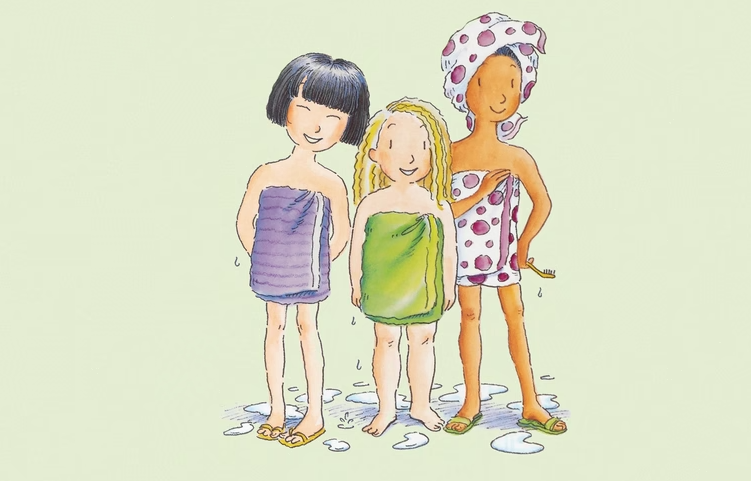For generations the entire idea of puberty was considered taboo.
Young kids were (and still are) embarrassed about their bodies and the developments of things they don’t understand. Because of this some found it difficult to ask their parents for answers to the questions they have.
Most U.S. schools provide a basic sex education as a part of its curriculum occurring in high school, middle school, or both. Not all who go through this course, however, find it particularly helpful as it depends on the school to explain everything to them properly.
Girls found it especially rough when it came to the understanding of what will happen during puberty, especially considering how confusing the entire process can be.
As a way to provide young girls answers to questions they may have, Valorie Lee Schafer wrote “The Care and Keeping of You.”
This book was published by the American Girl company in 1998 which made it quite popular given the company’s success. It was rated 8+ and was written as a kind of puberty answer key for girls.
Schafer had previously worked on the magazine for American Girl and wanted to find a way to reply to the letters they were receiving. “Just heartbreaking letters, but also such sweet letters.”
“The Care and Keeping of You” was her answer to their woes. The book contains instructions and advice for things many kids require further guidance on: skin care, bra shopping, self confidence, staying healthy, and more.
The book’s contents seem to be very helpful and highly educational, making sure to clearly state that every girl should have only herself in mind when it comes to her body. Although this may be true, some parents are unsure about the images and details the book includes considering the age rating.
On pages 76 and 77 the book gives instructions on how to insert a tampon as well as full bodily anatomy for girls. Many parents were very concerned about exactly how much the drawings for this specific section showed.
“Inappropriate,” one reviewer writes. “Do not get this book for young girls. It has a picture of a girl with no shirt or bra on and has full breast. It also has a picture of a girl with no pants or underwear on. My daughter did not need to see that.”
Many reviews share this same sentiment; that their daughters should not be seeing nudity from a book rated ages 8-10.
Another parent calls the book “Inapropriet![sic]” They are very adamant that “This is the worst book ever! and it is innapropriet![sic] DO NOT BUY!”
Though the voices of these individuals may be strong, not all parents think this way. Jean Busig, mother of five, bought this book to give to her eldest daughter when she was ten years old, “before she started her period.” She says that giving this information is not wrong as it is “important information, stuff they need to know.”
Mrs. Busig firmly believes that “If you’[are] buying a book for your kid and are concerned about the content you should be reading, or at least explaining to them what’[is] going on.”
When questioning the readers themselves some share the same idea.
Savannah Brewer confirms that when she received the book at age nine she was given no additional information about what certain words and phrases mean. She claims that as a child she found the book “unhelpful” and “scary,” going as far as hiding the book in her closet out of fear.
She does, however, believe that this “fear” was likely due to her having been left without any guidance on the topic regarding specifics.
Although the book is a wonderful guide, if little to no information has been given prior to the child receiving the book it is likely they will be overwhelmed by the contents.
Though some may find the contents inappropriate for young girls, “The Care and Keeping of You” does provide girls with valuable information and knowledge that can sometimes be difficult to find. In fact, the largest problem does not seem to be the content of the book itself, but the manner in which it is presented to the child.
It has been clearly shown that “The Care and Keeping of You” has indeed been beneficial; but are all books quite that informative?
“Will Puberty Last My Whole Life” is a book written by Julie Giesy Metzger and published by Little Bigfoot in 2012. The 224 page flip-book was written for kids between the ages of nine and twelve with one half being for girls and the other for boys.
The book provides paragraphical answers to questions about puberty and sex for both girls and boys. While this may seem alright in theory, many have issues with both the questions themselves, and how the questions are responded to throughout the book.
On page 24 on the girls’ side it answers the question “How do I ask my parent for a padded bra because I really want one?”
The answer provided talks about why people (especially when they are young) may want to wear a padded bra. However, it does not actually give an answer to how someone might go about bringing this topic up with their parents only saying that they should “think through” their reasons for wanting a padded bra.
It does not acknowledge that there are many reasons why someone may want a padded bra. A child may be getting bullied for having small breasts or perhaps it would just make them more comfortable with their body and this book that was meant to give advice was unhelpful.
This seems to be the case with multiple answers. The responses will dive quite thoroughly into the ‘why’ yet the answers one would genuinely be seeking are really quite short.
It is also seen in response to “one of my friends has a lot of B.O. Should I tell them or not?”
The author’s reply talk explains and acknowledges how body odor may be viewed to other people for an entire paragraph yet the reply is only two sentences long with only one idea of how a child may go about this.
On the other half in the boys section, the questions seem to be getting slightly out of hand.
One of the questions reads “How do I get a girl to have sex with me without forcing her?” and “How do I keep the creepy girls away so they don’t ruin my chances with the hot ones? To restate the rating, this book is meant for kids ages nine to twelve. Not many children within that age range are even thinking about having sex considering they would have only just started puberty recently.
There are plenty of other questions that could be answered about sex and consent. Informing kids young about proper consent is important so that if anything should happen they understand that they can say no and someone else can say no to them.
But phrasing a consent question in that manner does not tell the reader what it will be discussing and was very alarming to read as both a child and a parent.
Children are young and curious and overall very confused. Puberty and sex can be a difficult topic to understand and the more resources provided as an explanation, the better. However, it should still be noted that not all resources- even physical books -are good and parents should proceed with caution as they pick and choose reliable sources of information.
All children are going to grow up one day, all children have a right to know about their bodies.




